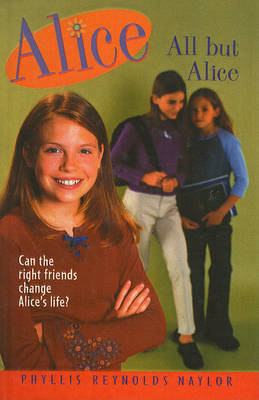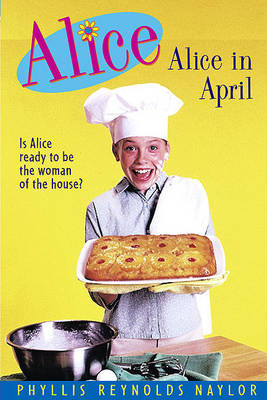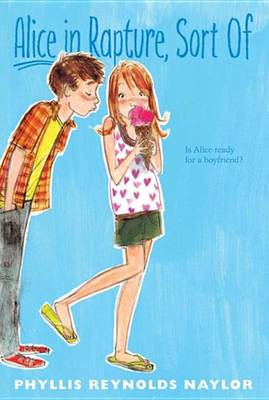Alice Stories S.
2 primary works • 3 total works
Book 4
But, she reasons, if you don't have a mother, maybe a sister would help. Maybe lots of sisters, a worldwide sisterhood. Be like everyone else, do what others do, and best of all, be part of the "in" group. Then you have sympathy and protection.
It is with this in mind that Alice joins the All-Stars Fan Club and the earring club and becomes one of the Famous Eight. It helps, even when it's a bit boring. On the whole, Alice thinks, she is enjoying seventh grade more than she had ever expected.
Yet Sisterhood, even Famous Eighthood, does not take care of all of her problems or answer all of her questions about life and love. Can she be Sisters with all three girls who want to be her brother Lester's girlfriends? How does she treat the fact that her father is dating her teacher, Miss Summers? How do you accept a box of valentine candy from a boy? In fact, how do boys fit into Universal Sisterhood -- or is there a Universal Humanhood? How far do you go when being part of the crowd means doing something you don't want to do?
As in the earlier Alice books, Alice copes with life in her own way, and her answers to her endless problems are often funny and surprisingly right.
Book 5
Of course, Alice is still in school. And there she faces another crisis. She might be Woman of the House at home, but in school she needs a different kind of name, one given by a table full of boys in the cafeteria Depending on their figures, girls are being given state names-- some states have mountains and others do not. Will flat, flat Delaware or Louisiana be her fate? Alice lives in fear that it might be, though even worse is the fear that she might not get a name at all.
The month ends with a dinner party for her father's birthday (part of being Woman of the House) that has more downs than ups-- and with a totally unexpected event that makes Alice and everyone she knows grow up a little and wonder a little deeper about life and the future. April is a hard month, but reading about "Alice in April" is to find that most tragedies (though not all) pass and tears can turn to laughter and delight.
v. 2
And, in this sequel to "The Agony of Alice," it is a good summer. There are ball games in the park, bike riding, sitting on the front porch with Patrick and talking -- and sometimes eating chocolates -- and sometimes kissing. But there are problems, too. How do you make yourself beautiful when you are not? How do you cope with an older brother who has no tact and no understanding of your problems? And most of all, how do you act with a boyfriend? Some of the things she hears make Alice think she needs a manual of instructions.
Through triumphs and disasters at the beach, through the trauma of dinner at the country club with Patrick, through moments of terrible embarrassment and discouraging attempts to sort out what having a boyfriend is all about, and through surprising thoughts and decisions, Alice persists in being Alice, a girl who wants to be like other people but who can't stop being herself. Her problems are fun and funny, and readers will find a lot of themselves and their own problems in Alice and her friends.


